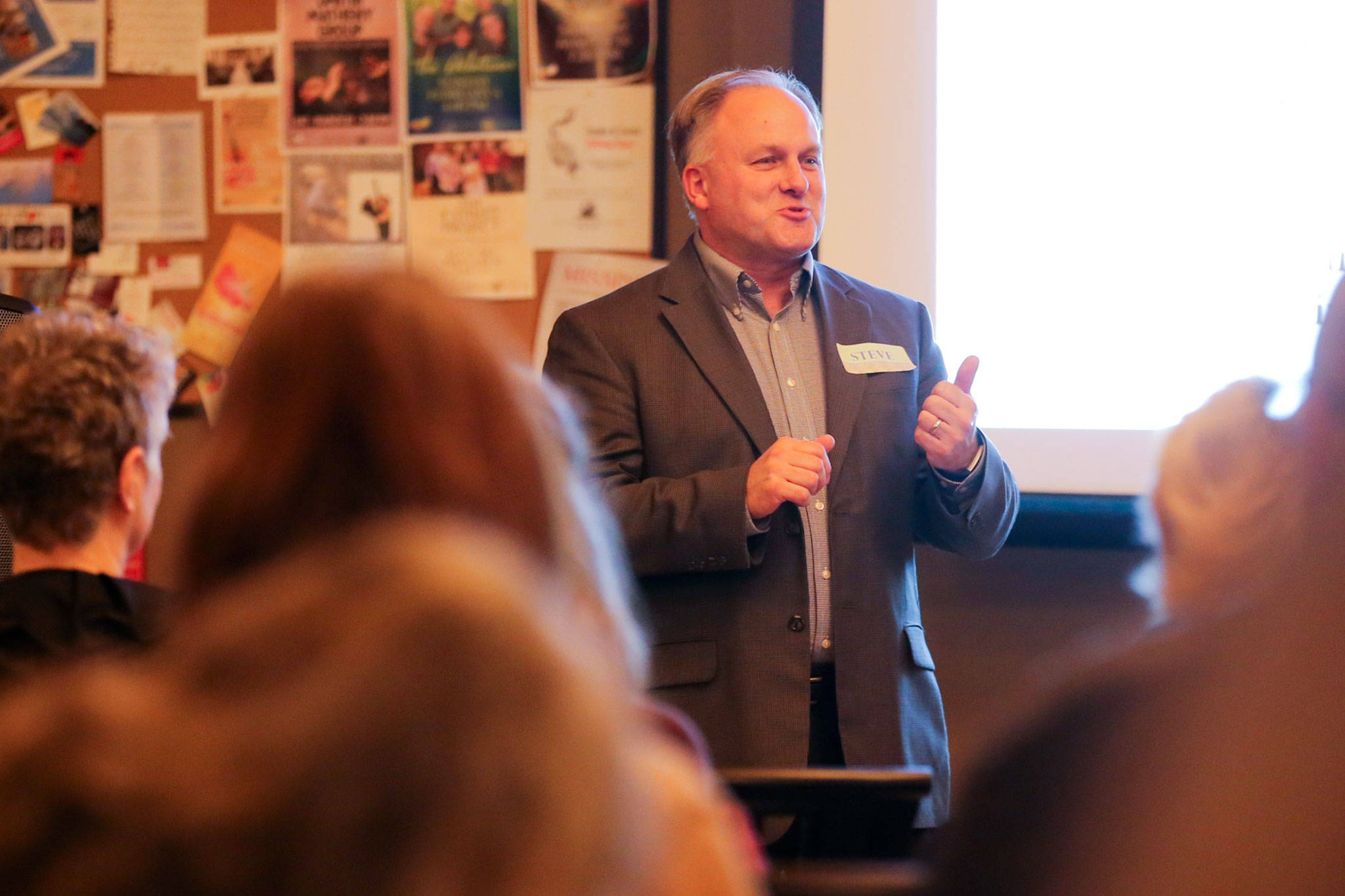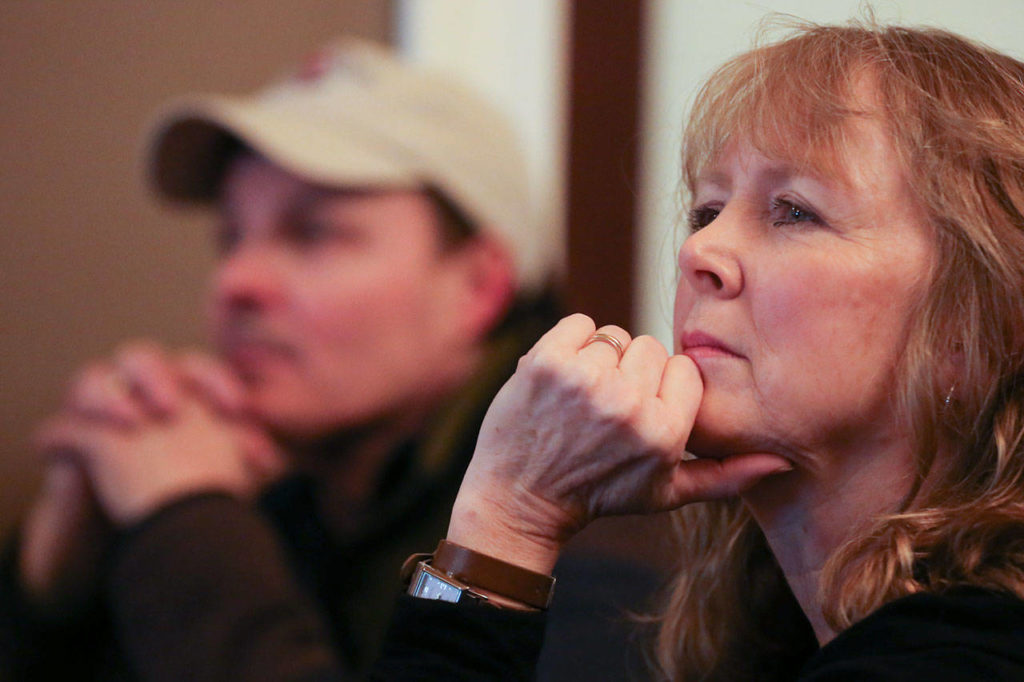SNOHOMISH — A new civic group has set out to reform the ugly politics that took over this place of charming streetscapes.
The activists call themselves the Snohomish Building Bridges Social Club. They want to change a climate left by rancorous City Council meetings and contentious elections in this historic city on the Snohomish River. To make it happen, they plan to use goodwill and reliable information.
“A lot of people will say the atmosphere on Facebook or at City Council meetings is so toxic,” said Meagan Gray, an original member. “This side and that side. No one has come up with a solution. We can’t wait around for different groups to build the first brick … We’re going to get people together and make our community better.”
Gray, 29, has lived in the city most of her life. She’s part of a core group of four that got together this past fall, before the November election. Each person from that original group brought in three others to form the social club.
Lya Badgley, 60, is the founder.
“There were four of us and we went out for a beer,” said Badgley, a former city councilwoman. “We posited the question: Is it appropriate to try to heal our wounded community after such a contentious, long battle? And is that appropriate for us as private citizens to think about doing that?”
The club of about a dozen emerged with a mission of educating people about how government works.
Individual bridge builders are politically active, and some are in elected office. But when they meet as a group, there are two rules: “We don’t talk politics and we don’t discuss things on social media,” Badgley said.
Instead, they meet face-to-face.
They work independently of the city. They aim to meet monthly. Additionally, they aim to organize regular events that are open to anyone.
“Building community has become an overused term, but one that has become critically important given what’s happening in our country as well as in our community,” Badgley said.
They felt compelled to do something, given the political bickering that took hold in Snohomish.
For two straight years, contentious elections split the city’s voters in half, pitting an insistent band of reformers against a cadre of civic leaders who said shaking up the status quo would leave the city worse off.
In 2016, voters narrowly supported an initiative to convert the city to a “strong mayor” form of government. It passed by just nine votes.
A year later, John Kartak prevailed in hard-fought campaign to claim the revamped mayoral position.
Kartak’s opponent, City Councilwoman Karen Guzak, had favored keeping the city’s council-manager form of government, in which other council members choose the mayor from their ranks, with a professional city manager handling most day-to-day city operations. Guzak was mayor for seven years under that system, before stepping down in 2017.
“We are people from both sides of the aisle, if you will, as to whether we were Kartak supporters or Guzak supporters,” Badgley said.
In November, Gray ran for a City Council seat, but came up short. The Building Bridges group includes recently elected Councilmembers Tom Merrill and Linda Redmon.
The group held its first public event in February. They hosted then-interim city administrator Steve Schuller at Looking Glass Coffee. More than 60 people showed up as Schuller, who is now the city’s permanent administrator, explained the basics of running a city, Badgley said.
On March 18, the group arranged a community cleanup around the Blackman House Museum. About 15 people took part.
They’re brainstorming their next community event. It could be larger than the ones they’ve done so far, perhaps some sort of block party this summer.
The group doesn’t expect to erase the divisions that run through their community, but they do hope to connect people on either side.
“This is not a new divide for Snohomish and it will continue to be there,” Badgley said.
She believes some of the differences stem from the city’s agricultural roots and more recent gentrification as people moved there from more urban areas.
Gray hopes they’re making a difference.
“Honestly, I think we have started a conversation,” she said. “All of us feel very proud of what we’re doing and what we’re trying to accomplish.”
Caitlin Tompkins contributed to this report.
Noah Haglund: nhaglund@heraldnet.com. Twitter: @NWhaglund.
Talk to us
> Give us your news tips.
> Send us a letter to the editor.
> More Herald contact information.


























